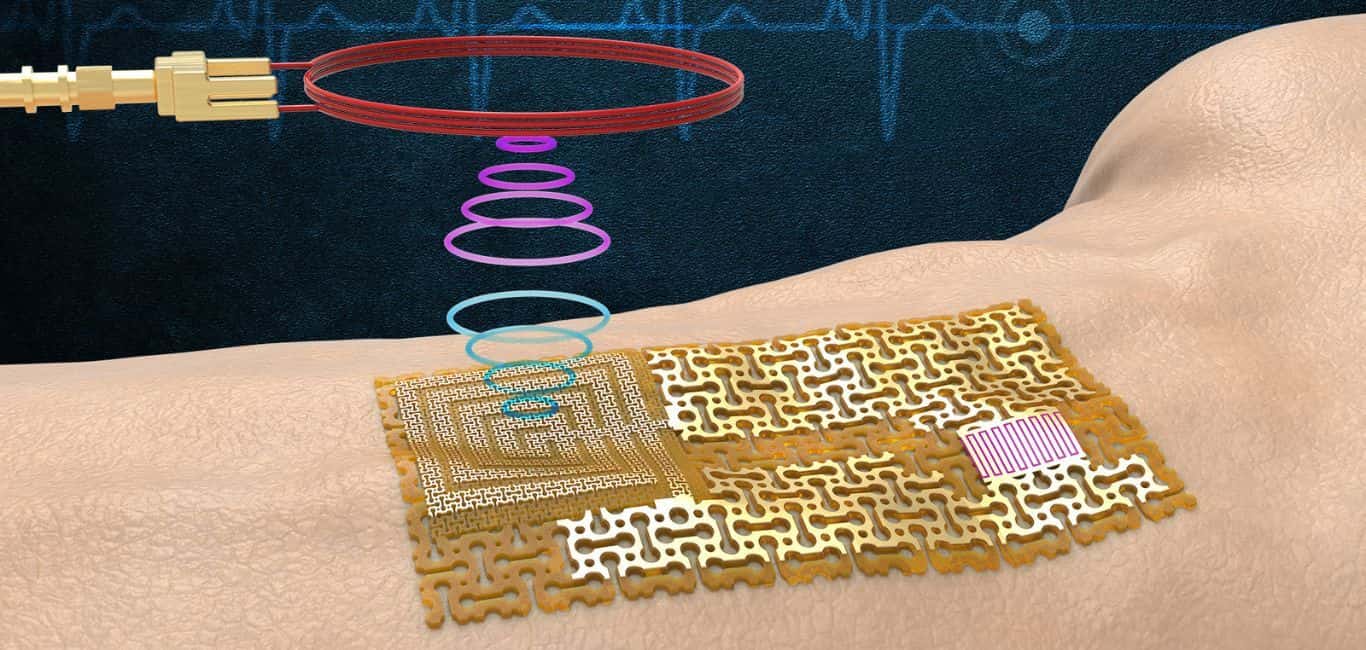
Researchers at the Massachusetts Institute of Technology (MIT) along with others have developed a new kind of wearable sensor that is smaller, thinner, and more flexible than today’s devices by doing away with bulky electronics such as integrated circuits and batteries.
The wearable sensor they developed is called an electronic skin or e-skin that can be worn like a Band-Aid. It wirelessly transmits information on strain, pressure, UV light and biomarkers for conditions such as anxiety, diabetes, and heart disease, to a smartphone for continuous monitoring.
Also read
Researchers at MIT develop ‘band aid-like’ ultrasound device
Scientists develop edible sensor to test quality of frozen foods
Researchers develop wireless device for remote Parkinson’s monitoring
“You could put it on your body like a bandage, and paired with a wireless reader on your cellphone, you could wirelessly monitor your pulse, sweat, and other biological signals,” Jeehwan Kim, associated professor at MIT and corresponding author of the study, told Happiest Health.
The wearable sensor uses gallium nitride and gold measuring just 250 nanometers thin, or about 100 times thinner than the width of a human hair. The ultra-thin membrane has piezoelectric properties, meaning it can convert mechanical energy to electrical energy to power the device.
“Our piezoelectric membrane can be used to build a surface acoustic wave device. The surface acoustic wave device combined with an antenna can work as a chip-less wireless sensor,” says Yeongin Kim, first author of the study and assistant professor at the University of Cincinnati.
The researchers say they can use strain and pressure information from the sensor to detect pulse and heart rate, useful when tracking exercise and trying to detect heart abnormalities. UV light information can be used to track exact amount of sun exposure, to warn against sun burns or too little exposure to sunlight that might lead to vitamin D deficiencies.
Better than today’s wearable sensors
Apart from its mechanical advantages over today’s wearables, the so-called e-skin may be worn for extended periods of time – even weeks – without any problems faced by the wearer. Not having an integrated circuit chip means the wearable sensor does not generate heat unlike the devices available today.
To validate this, the research team piloted a study on 19 individuals and found that the perforated structures of the device did not have any breathability issues and had high sensitivity and detection limits.
“Also, the minimum ion concentration detectable by our ion sensors is much lower than the ion concentration present in sweat. It means our ion sensors can reliably detect any ion concentration of sweat,” says Jiyeon Han, another corresponding author of the study.
Biomarkers in sweat can provide information about our bodies. The concentration of Na and K ions can detect dehydration. Glucose monitoring can help in monitoring and managing diabetes. Cortisol, a stress hormone, can be used to monitor stress levels to help prevent and manage psychological disorders such as depression and panic attacks.
The researchers say further clinical trials on a larger population might be needed to better understand the wearable sensor’s performance with respect to its efficacy and sensitivity.

















